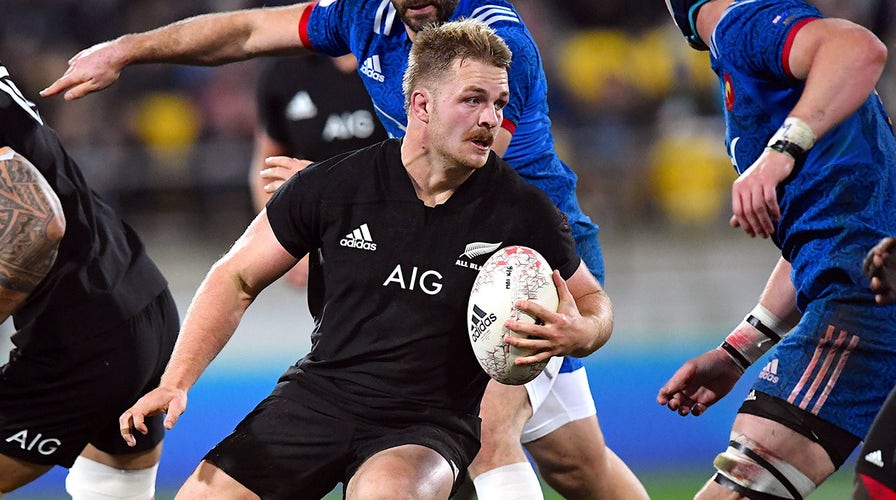Fox News Flash top headlines for October 21
Fox News Flash top headlines are here. Check out what's clicking on Foxnews.com.
The US Eagles will host three-time world champion New Zealand on Saturday in a one-off rugby test at Washington's FedEx Field, accompanied by familiar feelings of hope and trepidation.
New Zealand’s All Blacks, described as "legendary" by Republican lawmaker Alex Mooney when he welcomed the team to Washington this week, have played the Eagles in the United States only four times.
Mooney introduced the All Blacks as "the world’s most famous rugby club (who) strike fear in their opponents with their world famous traditional pre-game war dance called the haka."
Each of the All Blacks’ visits to the United States has been accompanied by the hope that a match against such a high-profile opponent might serve as a launching pad for rugby in a nation in which it remains mostly a niche sport.
CLICK HERE FOR MORE SPORTS COVERAGE ON FOXNEWS.COM
That hope was highest in 1913 when a New Zealand team played a series of matches against college teams before meeting an All American selection at Berkeley, California.
At the time, rugby was well-established and competing strongly with American football for popularity among college athletes, especially on the West Coast. A similar All American team had beaten Australia the year before.
But the rise of rugby in the United States might have been impaired when the All Blacks ran in 13 tries to beat the home side 51-3. While the United States won Olympic rugby tournaments in 1920 and 1924, the sport failed to achieve the broad popularity that had been hoped.
Each subsequent visit of the All Blacks to the United States has been attended by similar hopes, that rugby’s profile might be lifted, its support base increased. But that first result also implanted a sense of trepidation beneath the hope.
When the Eagles and All Blacks last met seven years ago at Soldier Field in Chicago, the New Zealanders again scored 13 tries and won 71-6 in front of a crowd of 61,000.
Their latest visit comes at a significant moment for rugby in the United States. The sport’s governing body has just announced a bold plan to seek hosting rights to the 2027 Rugby World Cup. A strong performance against the All Blacks on Saturday would be the boost that American rugby needs at a difficult time, adding credibility to the Cup bid.
But the Eagles are coming off one of their worst-ever results, a 34-15 loss to Uruguay in a match on Oct. 9 which has set back the United States’ hopes of qualifying for the 2023 World Cup in France. They now have to qualify through a home-and-away series against Chile next year.
The loss to Uruguay has left U.S. rugby in what head coach Gary Gold calls a "dark place." South Africa-born Gold said United States rugby was hit hard by COVID-19 and its subsequent travel restrictions, left without a match for almost two years. Canada, in a similar position, failed to qualify for the World Cup for the first time in the tournament's history.
"We were thrown into a World Cup qualifier off the back of not having been assembled since the last Rugby World Cup," Gold told New Zealand media this week. "Teams like Uruguay and Chile, we were beating both those teams by 70 points three years ago. It can’t just be that all of a sudden USA and Canada rugby are (no good). When you look at the facts, they’ve just played and we haven’t."
Gold has a simple answer for the United States: It needs regular matches, especially against top-tier teams like the All Blacks. But world rugby’s rigid schedule makes that difficult.
The top nations are already locked into competitions like the Europe-based Six Nations and the southern hemisphere's Rugby Championship, along with traditional test matches in June and November. There is little room in their schedules for matches against the United States.
"Our next objective is to not be playing three or four World Cup qualification matches after not being together for two years, but to hopefully have a substantial schedule of anything from 13 to 16 test matches a year," Gold said.
"Where we can spend significant time together, we can continue to play together and continue to improve together. The landscape for North American rugby and particularly the U.S. is, down the line, quite encouraging."









































